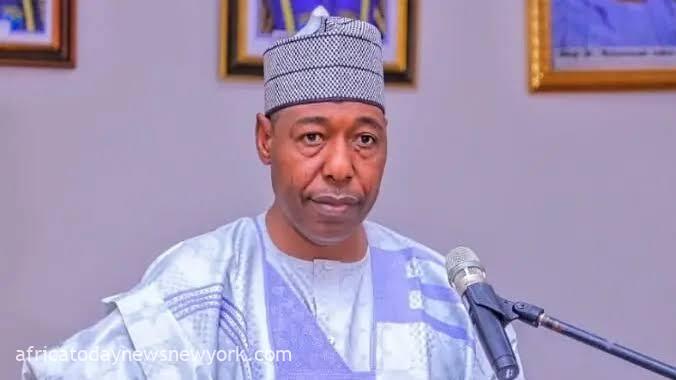The Borno State Governor, Babagana Zulum, has rolled out a unified curriculum for Islamic schools, aimed at combating violent extremist ideologies and deterring the radicalization of young people by terrorist factions.
Borno State has been heavily impacted by the Boko Haram insurgency, which originated in Maiduguri around 2002.
The extremist group, Jamā’at Ahl as-Sunnah lid-Da’wah wa’l-Jihād, commonly known as Boko Haram, advocates against Western education, as reflected in its name which means “Western education is forbidden.”
The group, initially founded by the late Muhammed Yusuf and subsequently led by Abubakar Shekau from 2009 until his reported death in 2021, orchestrated violent assaults on Western education. It is reported to have destroyed approximately 2,500 classrooms, displacing hundreds of thousands of students, and engaged in the abduction of pupils.
Unveiling the curriculum on Tuesday, Zulum said, ‘Our Islamic schools have been operating without a unified curriculum for at least three to four decades and that is a matter of great concern to all of us.’
‘The so-called Boko Haram insurgency was started as a result of some misleading preaching, therefore it is imperative for us to devise a way such as this curriculum to avert such in the future.’
Read also: Boko Haram Strikes Again: 11 Loggers Beheaded In Borno
Zulum said his administration would ensure that all Islamic schools strictly follow the new unified curriculum.
He emphasised the importance of teaching and preaching following the authentic content of the holy books.
He said, ‘We are currently witnessing another development recently; we are concerned by the way some scholars preach. Therefore, the Government of Borno State will do everything possible to ensure that teaching and preaching comply with the proper content of the holy books.’
Zulum highlighted the correlation between the updated curriculum and the guidelines set by the National Board for Arabic and Islamic Studies. He emphasized that this strategic initiative is aimed at enabling students from private Islamic schools to meet the academic requirements for university and college acceptance.
In an earlier statement, Khalifah Sheikh Ali Abulfathi, Chairman of the Arabic and Tsangaya Education Board, emphasized that the curriculum, rooted in the Maliki school of thought, focuses primarily on the instruction of Arabic, Quran, Hadith, Tauhid, and jurisprudence.
‘The board reviewed existing teaching methodologies and instructional materials used by the Islamiyya schools as part of efforts to give the knowledge and values needed.’
Abulfathi urged parents and stakeholders to rally behind the new curriculum, emphasizing the importance of ensuring that every child has access to top-tier Islamic education.

